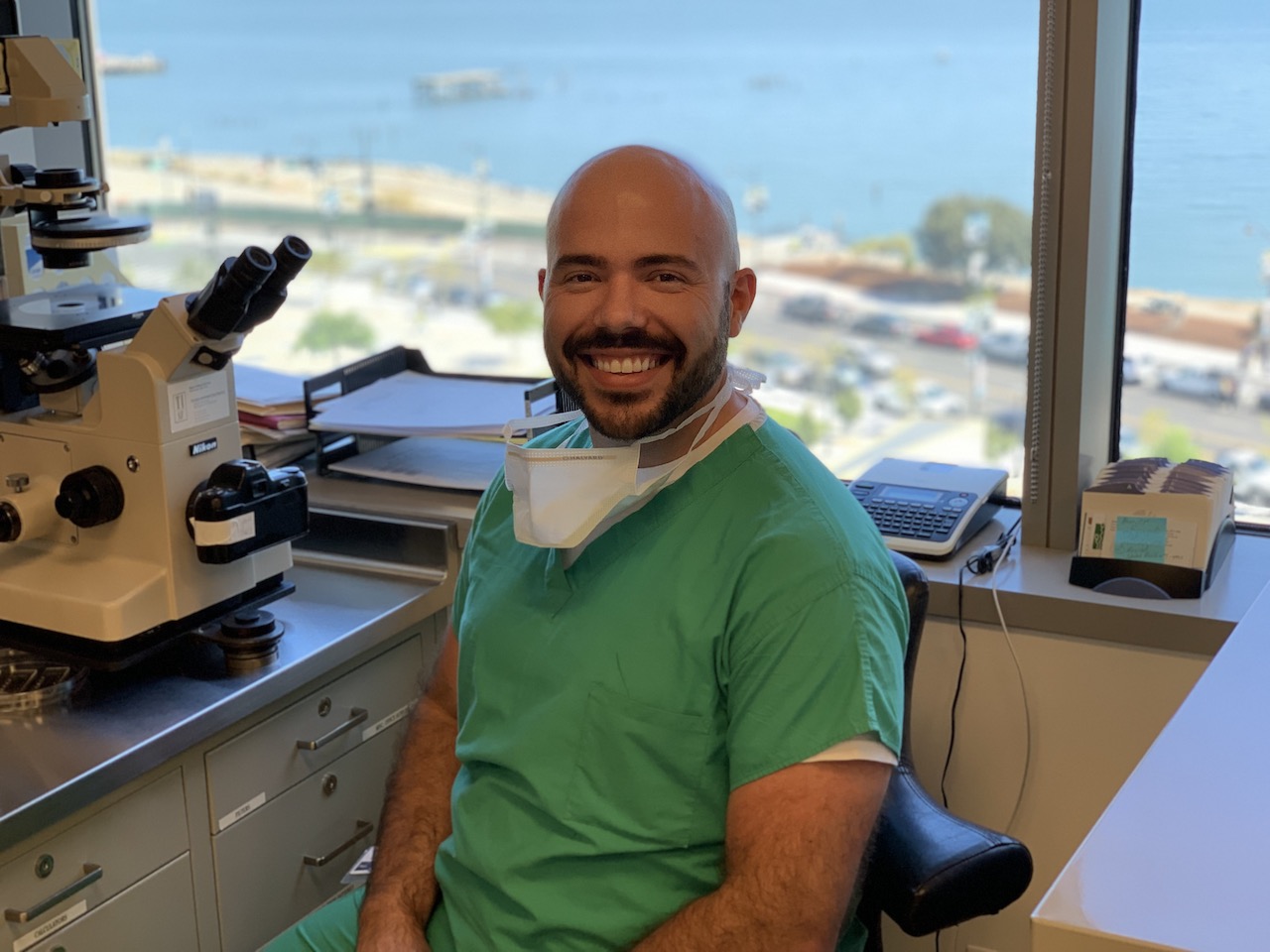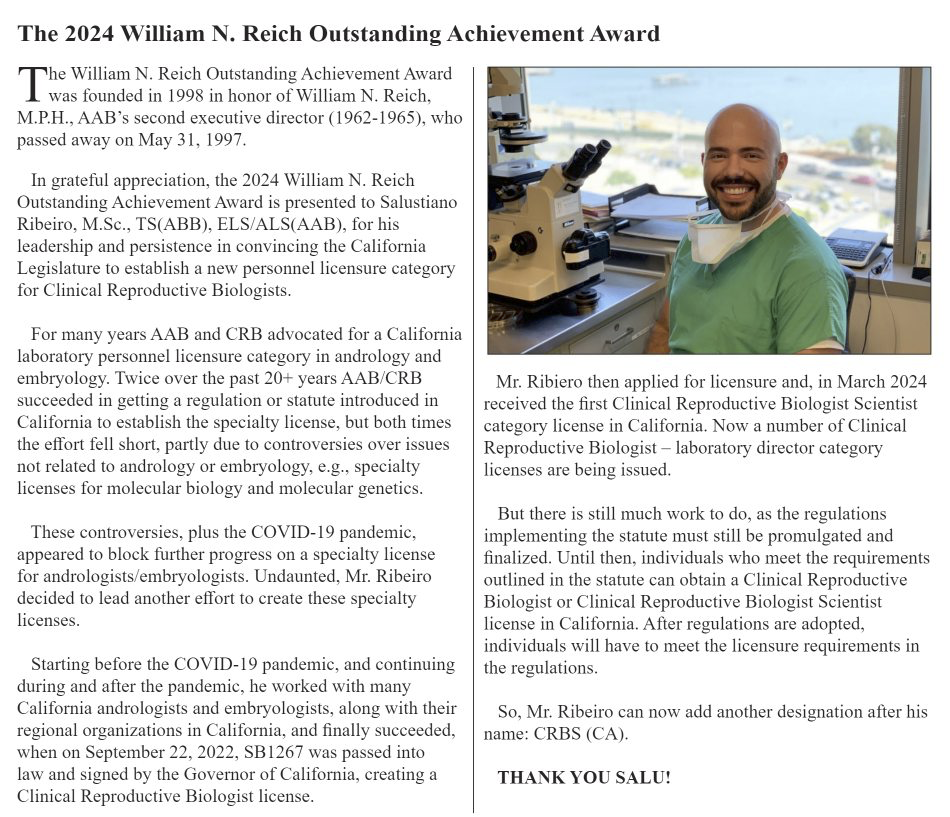Celebrating a Milestone in Reproductive Healthcare: Introducing the Clinical Reproductive Biologist Licensure in California

The UCSF Center for Reproductive Health is proud to announce a groundbreaking development in the field of reproductive healthcare. Our very own senior embryologist, Salustiano Ribeiro, M.Sc., TS(ABB), ELS/ALS(AAB), has been instrumental in the establishment of a new personnel licensure category for Clinical Reproductive Biologists in California. This achievement is a testament to our team's dedication to advancing reproductive health through scientific innovation and education.
For over two decades, the Association of Andrology and Embryology (AAB) and the College of Reproductive Biology (CRB) have advocated for the creation of a specialized licensure category for professionals in andrology and embryology. Despite numerous setbacks, including controversies unrelated to reproductive sciences and the challenges posed by the COVID-19 pandemic, Mr. Ribeiro's perseverance and leadership have finally brought this vision to fruition.
Beginning his advocacy efforts before the pandemic and continuing through its aftermath, Mr. Ribeiro collaborated with numerous andrologists and embryologists across California and their regional organizations. Their collective efforts culminated in the passage of SB1267 on September 2, 2022, signed into law by the Governor of California, officially establishing the Clinical Reproductive Biologist license.
In March 2024, Mr. Ribeiro became the first individual to receive the Clinical Reproductive Biologist Scientist category license in California, marking a historic moment for the field. This new licensure category not only acknowledges the specialized skills and expertise of clinical reproductive biologists but also sets a higher standard for reproductive healthcare across the state and potentially the entire country.
While this achievement is a significant milestone, it is just the beginning. The regulations implementing the statute still need to be finalized. Until then, individuals who meet the statutory requirements can obtain a Clinical Reproductive Biologist or Clinical Reproductive Biologist Scientist license. Once the regulations are in place, applicants will need to meet the detailed licensure requirements.

This accomplishment has not gone unnoticed. In recognition of his leadership and determination, Mr. Ribeiro was honored with the 2024 William N. Reich Outstanding Achievement Award. However, he emphasizes that this was a team effort, reflecting the collective commitment and hard work of our entire team at UCSF.
We are immensely proud of Mr. Ribeiro and our team for their dedication to improving reproductive healthcare. This new licensure category is a testament to our unwavering commitment to providing the highest quality of care while pioneering advancements in the field. We look forward to continuing our work and making significant strides in reproductive health science and education.
Stay tuned for more updates and developments as we continue to lead and innovate in reproductive healthcare. For more information on the new Clinical Reproductive Biologist licensure and how it impacts the industry, please visit CRB's website. Together, we are shaping the future of reproductive health.
About Blog
There are many causes of infertility. For a successful pregnancy to occur, a healthy egg needs to meet healthy sperm, fertilize, develop and find a good place to grow (a receptive uterus). Problems at any of these steps can cause difficulties in getting pregnant. A woman’s body might not release an egg each month due to hormone imbalances, or perhaps the man’s body isn’t producing enough motile sperm.